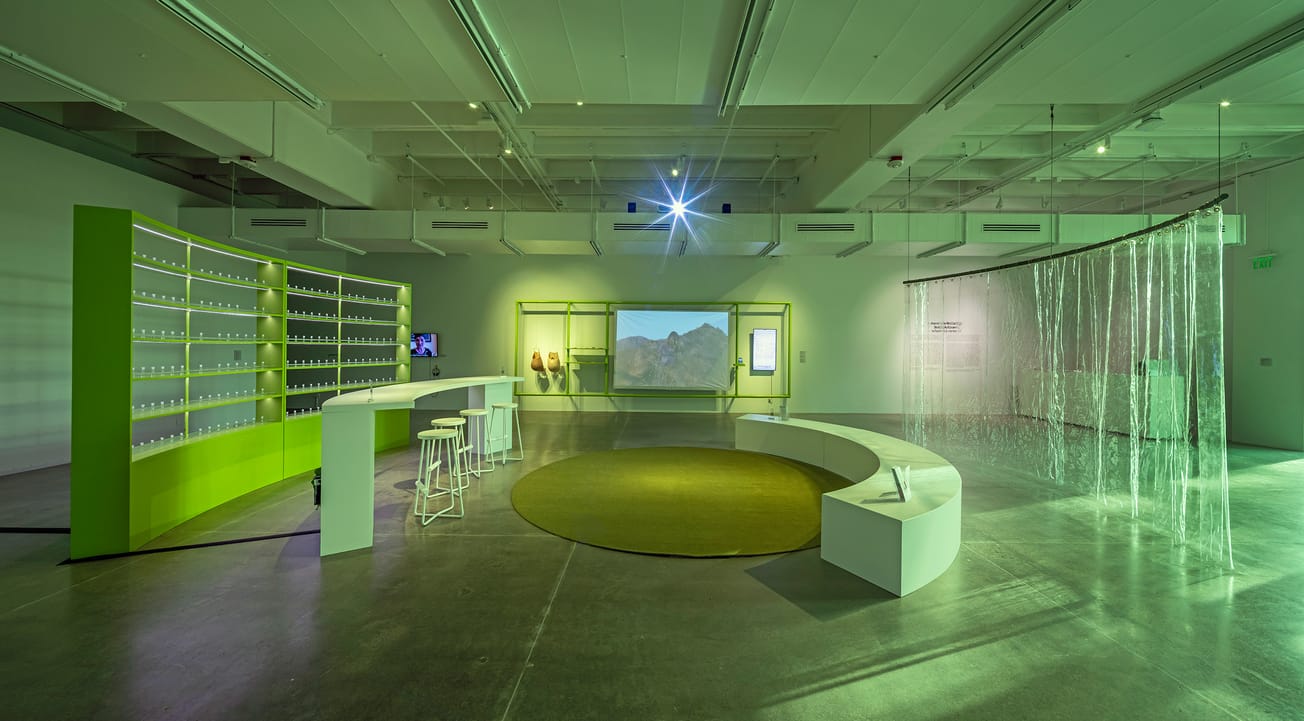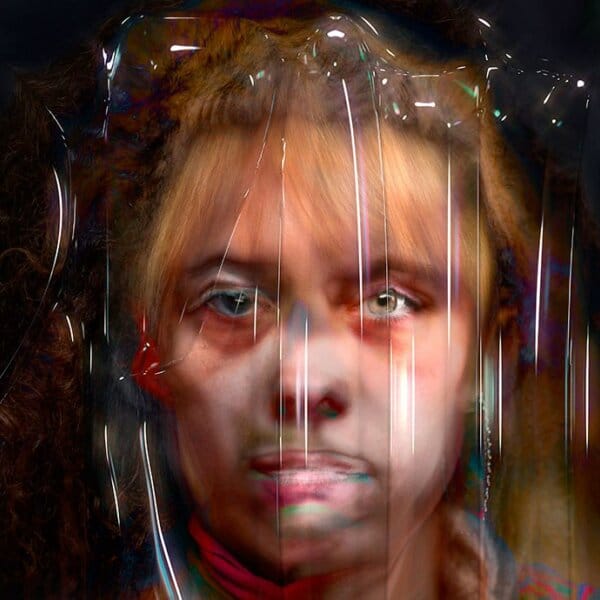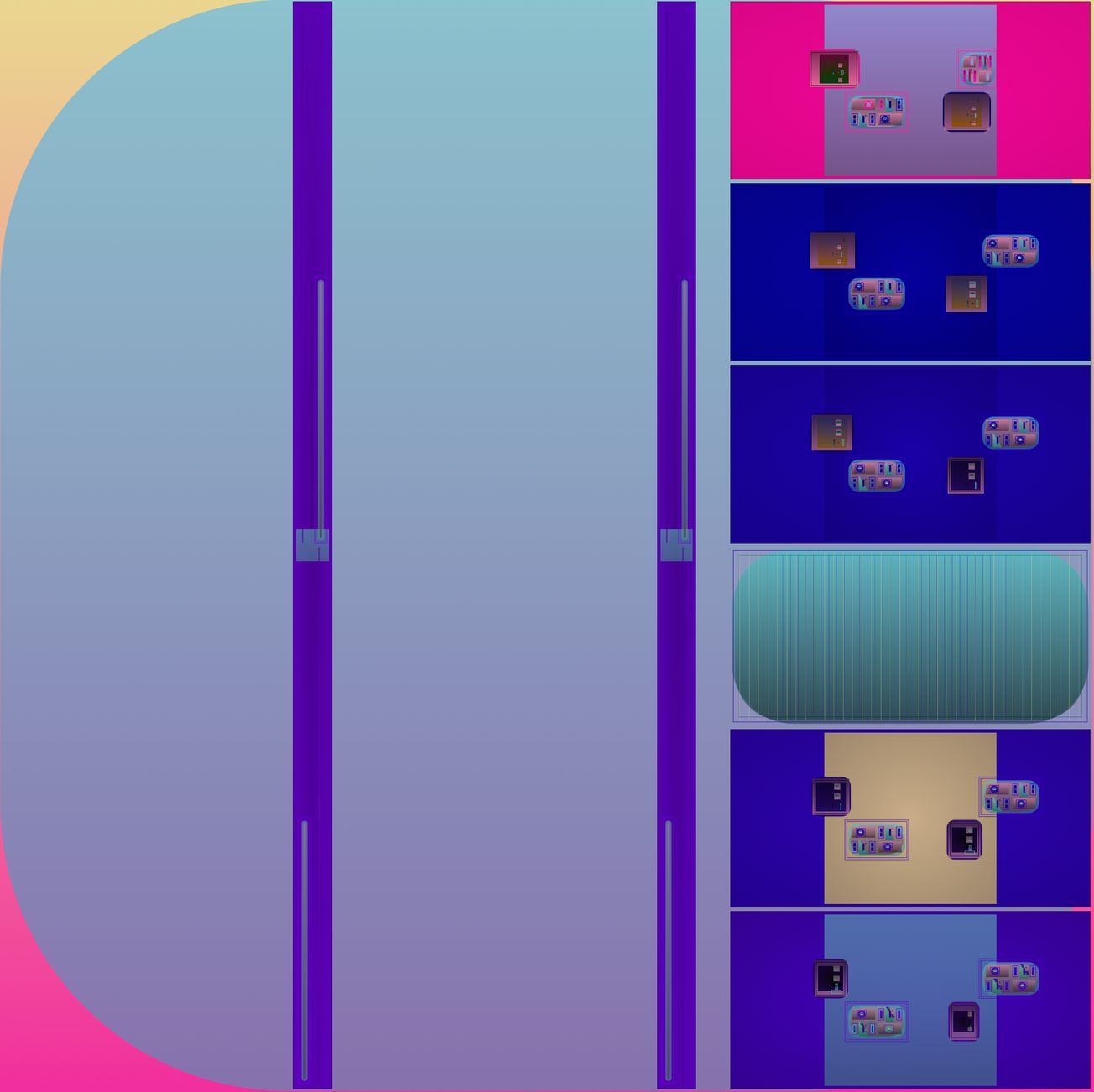The questions surrounding ethics and data collection have never been more prevalent and critical. Personal data, albeit biological, health, consumer behavior, location, and many more, are routinely captured, tracked, and integrated into social, cultural, and political infrastructures by an array of interested parties through sometimes less-than-detectable algorithms. With the continued rise in the datafication of personal information, how many people know who has access to their personal data or how it is used to shape their lives and the lives of others?
Lauren Lee McCarthy, an artist working across media, including performance, video, installation, software programming, and AI, examines and, in many cases, highlights the complexity of algorithms embedded in the human experience. In her largest solo exhibition in the United States to date, Bodily Autonomy, McCarthy brings together two major works —Surrogate and Saliva—to examine bio-surveillance. The exhibition invites visitors to consider the pervasive impact of algorithms via corporate and government surveillance affecting the personal level of biological autonomy individuals possess—or, perhaps more accurately, what they perceive themselves to possess.
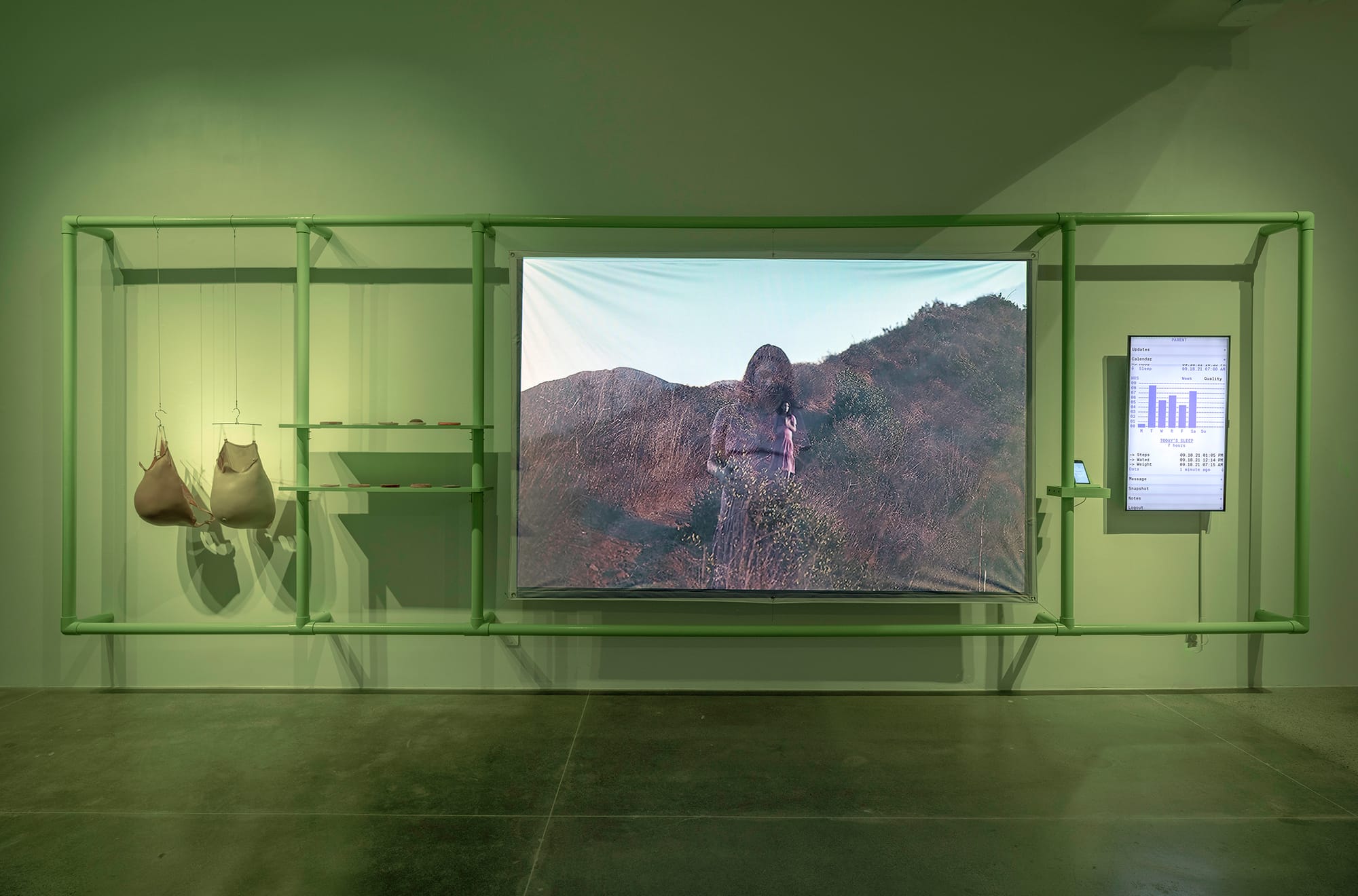
While examining the social, political, legal, and familial constructions around surrogacy, the questions she is asking and unpacking in Surrogate are deeply intertwined with algorithmic determinism, “How much control should we have over a birthing person’s body, and over a life before it’s born? What does kin mean when rapidly developing reproductive technologies—including IVF, egg and sperm donation, embryo freezing, DNA testing, and gene editing—shift our relationships? What happens when our industrialized drive for control collides with the process of birth?”
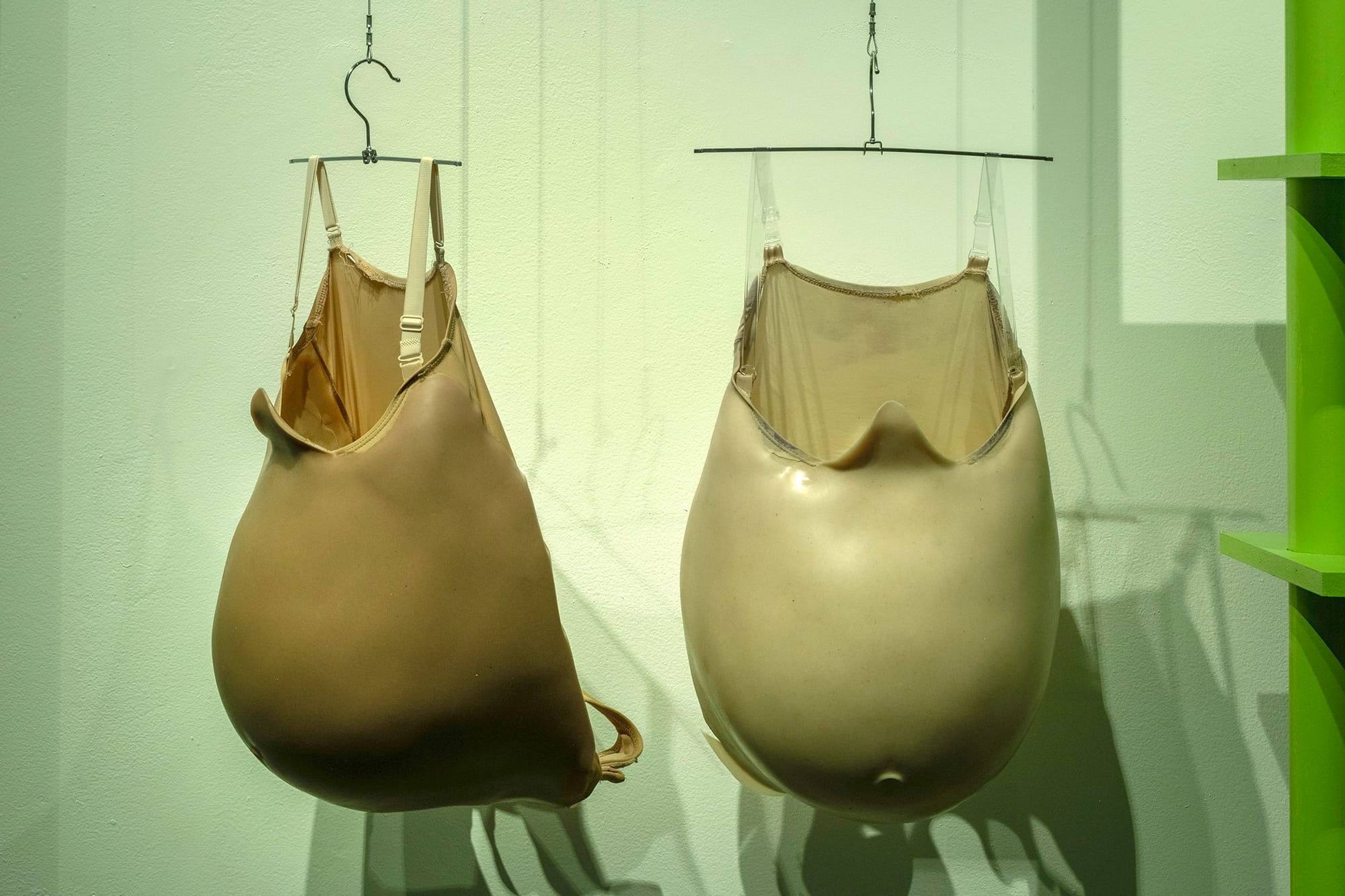
Through a series of performances, installations, and videos, Saliva explores DNA sampling and data harvesting through the routine collection of swabs and spit. Commissioned by the Mandeville Art Gallery, the Saliva Bar invites visitors to exchange samples of their own saliva with one another. Upon submitting their sample, through the assistance of an attendant, visitors are prompted to consent with questions that include: “Do you consent to your saliva being used ...for research? ...to reproduce biological material? ...by insurance companies? ...to create weapons?”

Together, Surrogate and Saliva encourage a potent and timely dialogue regarding bodily autonomy in times of rapid technological development and increased corporate and government surveillance. McCarthy's exhibition exploring the complexities of data ethics and surveillance offers visitors a provocative invitation to consider the broader societal implications of datafication in shaping our interconnected lives.
The current solo exhibition of Lauren Lee McCarthy at Mandeville Art Gallery San Diego. Bodily Autonomy marks the official premiere of Saliva and Surrogate, both Creative Capital–funded projects.
Lauren Lee McCarthy (she/they) examines social relationships in the context of automation, surveillance, and algorithmic living. She has received grants and residencies from Creative Capital, United States Artists, the Los Angeles County Museum of Art, Sundance, Eyebeam, Pioneer Works, Autodesk, and Ars Electronica. Her work SOMEONE was awarded the Ars Electronica Golden Nica and the Japan Media Arts Social Impact Award, and her work LAUREN was awarded the IDFA DocLab Award for Immersive Non-Fiction. Her work has been exhibited internationally, at the Barbican Centre, Fotomuseum Winterthur, Haus der elektronischen Künste, the Seoul Museum of Art, Chronus Art Center, SIGGRAPH, Onassis Cultural Center, IDFA DocLab, Science Gallery Dublin, the Japan Media Arts Festival, and beyond. McCarthy is the creator of p5.js, an open-source art and education platform that prioritizes access and diversity in learning to code, with more than ten million users. She expanded on this work in her time on the board of directors for the Processing Foundation (2015–21), whose mission is to serve those who have historically not had access to technology, code, and art in learning software and visual literacy. McCarthy is a professor at UCLA Design Media Arts. She holds an MFA from UCLA and bachelor’s degrees in computer science and art and design from MIT.
About the Mandeville Art Gallery
The Mandeville Art Gallery, previously known as the University Art Gallery, is a long-standing fixture on the UC San Diego campus with a five-decade history of presenting innovative art in the context of a major research university. Managed by the School of Arts and Humanities and located on the west end of Mandeville Center, the gallery operates as an institute for transformative contemporary art serving both the university and the local community, and it newly re-opened after extensive renovations in March 2023.

